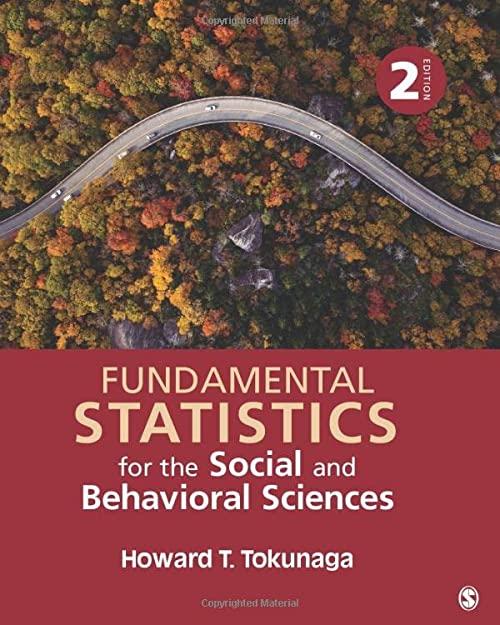When you're interviewing for a job, is your behavior influenced by beliefs the interviewer has about you?
Question:
When you're interviewing for a job, is your behavior influenced by beliefs the interviewer has about you? Researchers Ridge and Reber (2002) observed the interactions of 54 men, each of whom was interviewing a woman for a job. Right before conducting their interviews, half of the men were told the woman whom they were interviewing was attracted to them. The researchers hypothesized that "these same men would elicit relatively more flirtatious behavior from women than would men holding no such belief" (p. 2). The interviews were videotaped, and the number of flirtatious behaviors performed by each woman was counted. The researchers reported the following descriptive statistics regarding the mean number of flirtatious behaviors: attraction condition \((N=27, M=37.44, s=5.21)\) and no attraction condition \((N=27, M=34.59, s=4.54)\).
a. State the null and alternative hypotheses \(\left(\mathrm{H}_{0}\right.\) and \(\left.\mathrm{H}_{1}\right)\).
b. Make a decision about the null hypothesis.
(1) Calculate the degrees of freedom \((d f)\).
(2) Set alpha \((\alpha)\), identify the critical values, and state a decision rule.
(3) Calculate a value for the \(t\)-test for independent means.
(4) Make a decision whether to reject the null hypothesis.
(5) Determine the level of significance.
c. Draw a conclusion from the analysis.
d. Relate the result of the analysis to the research hypothesis.
Step by Step Answer:

Fundamental Statistics For The Social And Behavioral Sciences
ISBN: 9781506377476
2nd Edition
Authors: Howard T Tokunaga




